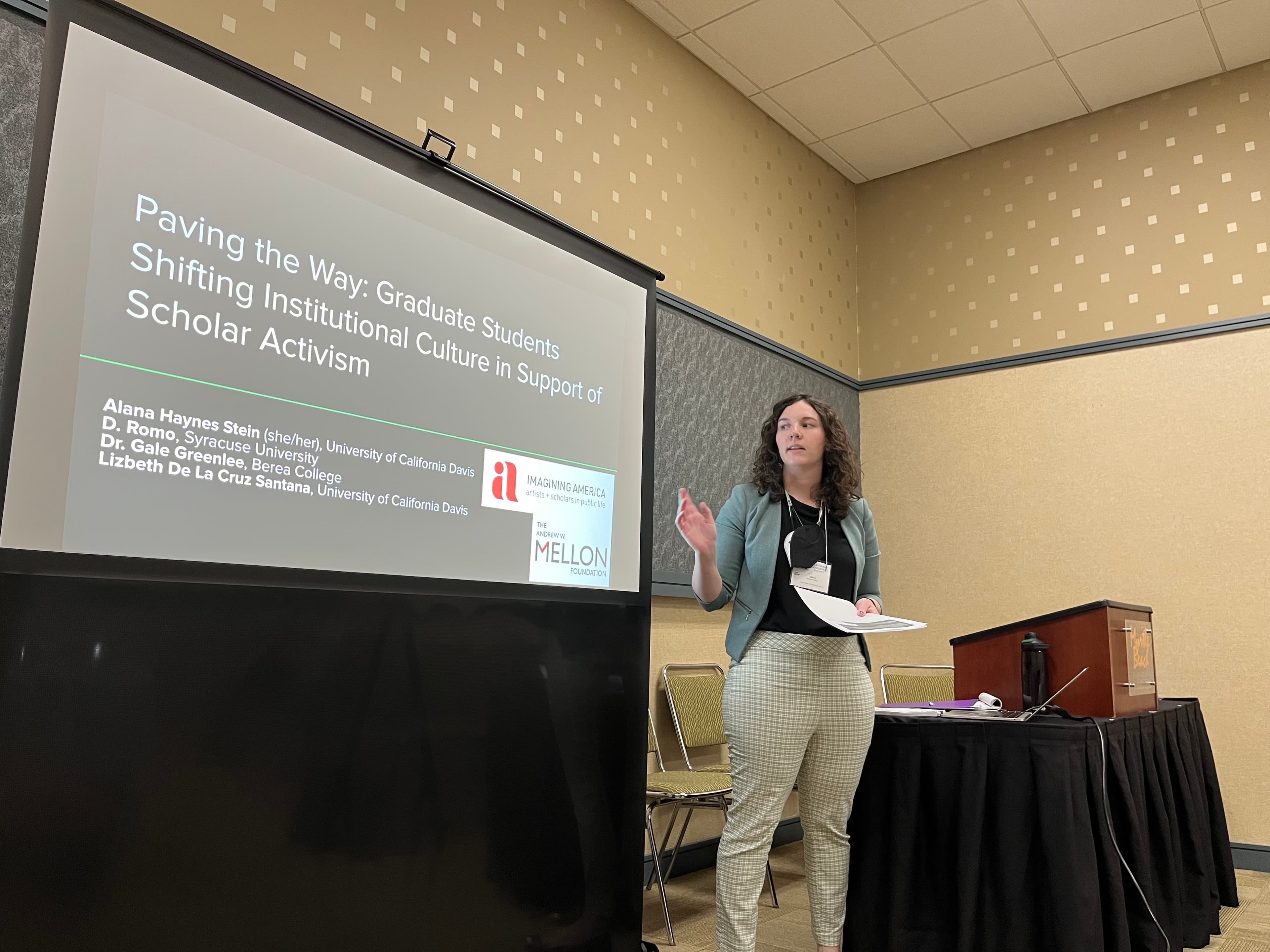Abstract
Objectives:
Southern scholar activists have paved the way in making space for scholar activism to be practiced in universities across the country. The work of Southern scholar activists, particularly women and BIPOC activists laid the foundations for the scholar activism within university settings. However, scholar activism and scholar activists still remain marginalized within academia. This research was part of Imagining America’s (IA) Leading and Learning Initiative around how to create institutional culture change in support of public scholarship within academia. Research on public scholarship often overlooks graduate public scholars who are in a vulnerable position within the university. We seek to address this gap in the literature and understand how institutional culture can be shifted by focusing on the agency of graduate scholar activists within universities.
Methods:
We draw on 54 semi-structured, in-depth interviews with public scholars about their experiences in graduate school and an ongoing national graduate student survey about graduate experiences with public scholarship. This research focused on alumni of IA’s Publicly Active Graduate Education (PAGE) program (n=23) and current students and recent alumni of the University of California, Davis (n=31). Due to lack of representation in IA’s membership, the national survey is intentionally oversampling Historically Black Colleges and Universities, Hispanic Serving Institutions, Tribal Colleges and Universities, and smaller institutions and will conclude with data collection in November 2022.
Findings:
Some graduate scholars were directly influenced by Southern scholar activists (particularly Black and Latinx feminist scholars) and many others carried on these traditions and legacies. Scholars also pointed to their own community activism rooted in Southern communities and institutions. We found that scholar activists faced more barriers than less activist-oriented public scholars. Regardless of these challenges and barriers, these scholar activists continue to pave the way by shifting institutional culture in support of future scholar activism. We identified several mechanisms that scholar activists used to create new pathways for doing scholar activism within graduate school programs - redistributing resources to communities, recognizing diverse forms of knowledge production, and graduate student labor organizing. Despite their own financial insecurity, graduate scholar activists reiterated the importance of using their power within university spaces to redistribute financial, educational, and institutional resources to the communities with which they were engaged. Scholars used their understanding of academic norms and culture to legitimize community members’ knowledge production within the university. Graduate students participated in labor organizing, advocating for fair compensation and for institutions to be inclusive and accessible to diverse scholars, particularly groups underrepresented in academia. These paths show how graduate scholars are building upon the legacies of their predecessors as they work to reimagine more just forms of scholarship.
